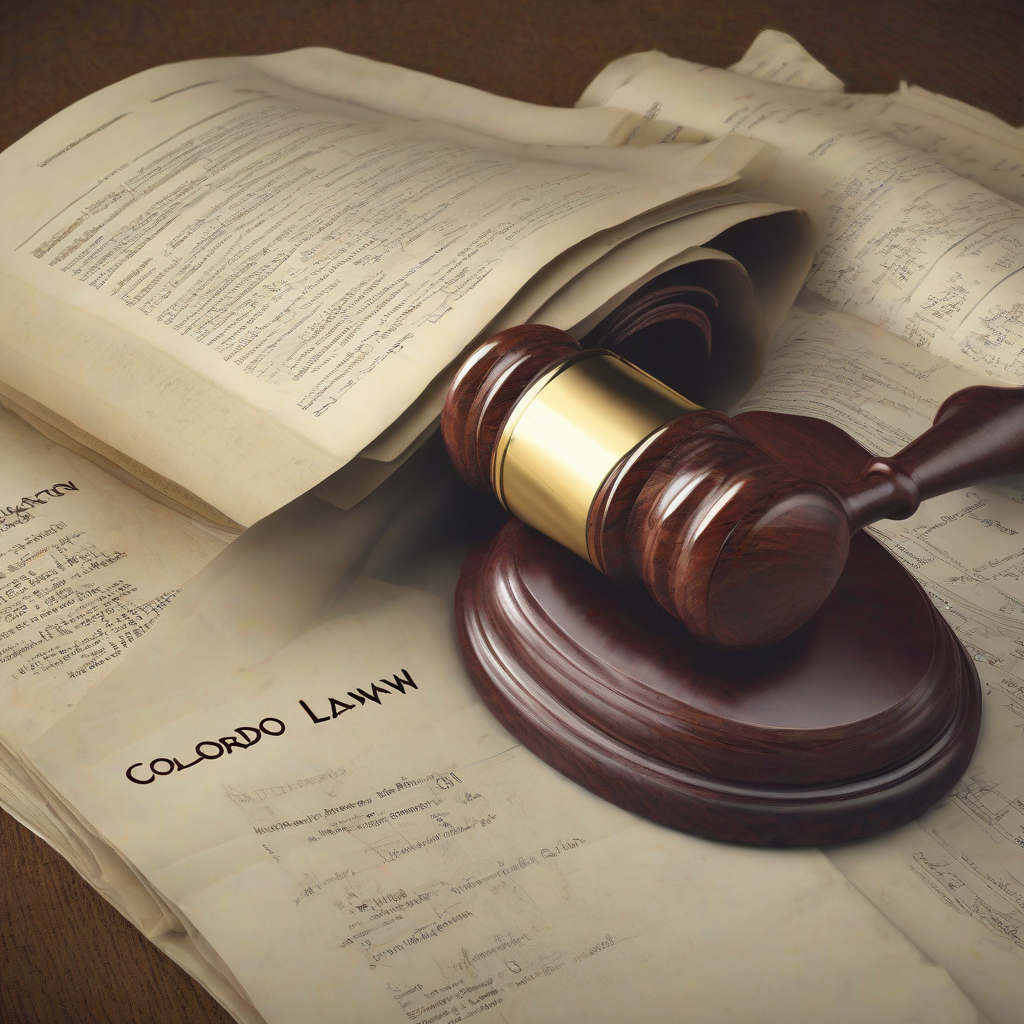Navigating the Complexities of Colorado Family Law: A Comprehensive Guide
Colorado family law governs a wide range of legal issues affecting families, from marriage and divorce to child custody and support. Understanding these laws is crucial for anyone facing family-related legal matters in the state. This guide provides a comprehensive overview of key aspects of Colorado family law.
Marriage and Divorce in Colorado
Colorado is a “no-fault” divorce state, meaning that neither spouse needs to prove fault or wrongdoing to obtain a divorce. However, certain factors can influence the division of marital assets and debts, as well as child custody arrangements.
Grounds for Divorce
- Irreconcilable differences: This is the most common ground for divorce in Colorado. It simply means that the marriage has broken down irretrievably and there is no reasonable prospect of reconciliation.
- Separation: Couples may seek a divorce after living separately for a specified period, demonstrating the irretrievable breakdown of the marriage.
Division of Marital Property
Colorado is a community property state. This means that all assets and debts acquired during the marriage are generally considered marital property and are subject to equitable distribution. “Equitable distribution” doesn’t necessarily mean an equal 50/50 split, but rather a fair and just division based on the circumstances of the case.
- Factors considered in equitable distribution include the length of the marriage, the contributions of each spouse (financial and non-financial), and the economic circumstances of each spouse.
- Separate property, such as assets acquired before the marriage or received as a gift or inheritance during the marriage, is generally not subject to division.
Spousal Maintenance (Alimony)
In Colorado, spousal maintenance, also known as alimony or spousal support, can be awarded in certain circumstances. The court considers factors such as the financial needs of the requesting spouse, the ability of the other spouse to pay, and the length of the marriage.
- Spousal maintenance awards can be temporary or permanent, depending on the specifics of the case.
- Factors influencing the amount and duration of spousal maintenance include the earning capacity of each spouse, the duration of the marriage, and the contributions of each spouse during the marriage.
Child Custody and Support in Colorado
Colorado courts prioritize the best interests of the child in all custody and support determinations. The focus is on creating a stable and nurturing environment for the child, regardless of the parents’ relationship.
Legal Custody
Legal custody refers to the right to make major decisions concerning the child’s life, such as education, healthcare, and religion.
- Legal custody can be awarded to one parent (sole legal custody) or shared between both parents (joint legal custody).
- The court considers the parents’ ability to cooperate and communicate effectively when determining legal custody.
Physical Custody
Physical custody refers to the right to have the child live with them. This can also be awarded to one parent (sole physical custody) or shared between both parents (joint physical custody).
- Parenting time schedules are developed to ensure that the child spends meaningful time with both parents, when appropriate.
- The court’s decision on physical custody considers the child’s needs, preferences (if old enough to express them), and the parents’ ability to provide a stable and nurturing home environment.
Child Support
Child support is financial assistance provided by one parent to the other for the support of their child(ren). Colorado uses child support guidelines to calculate the amount of support owed.
- The guidelines take into account the parents’ income, the number of children, and other relevant factors.
- Deviations from the guidelines may occur in certain circumstances, such as when one parent has significantly higher or lower income than the other.
Domestic Violence and Protective Orders
Colorado has strong laws protecting victims of domestic violence. Individuals experiencing domestic violence can seek a temporary or permanent protective order from the court.
- A protective order can restrict the abuser’s contact with the victim and their children.
- Protective orders can include provisions for temporary custody, child support, and exclusion from the family home.
Paternity and Parentage
Establishing paternity is crucial for determining child support and custody rights. In Colorado, paternity can be established through voluntary acknowledgement, DNA testing, or court proceedings.
- If the parents are unmarried, a paternity action may be necessary to legally establish the father’s relationship to the child.
- Once paternity is established, the father has the same legal rights and responsibilities as a married father.
Adoption in Colorado
Colorado allows for both public and private adoptions. The adoption process involves a thorough investigation and approval process to ensure the best interests of the child are protected.
- Public adoptions involve children in the foster care system.
- Private adoptions typically involve the consent of the biological parents.
Legal Representation
Navigating Colorado family law can be complex and challenging. It is highly recommended to seek legal representation from a qualified family law attorney. An attorney can provide guidance, represent your interests in court, and help you achieve the best possible outcome.
- An attorney can help you understand your rights and obligations under Colorado law.
- An attorney can negotiate with the other party to reach a settlement, or represent you in court if necessary.
Conclusion (Omitted as per instructions)

